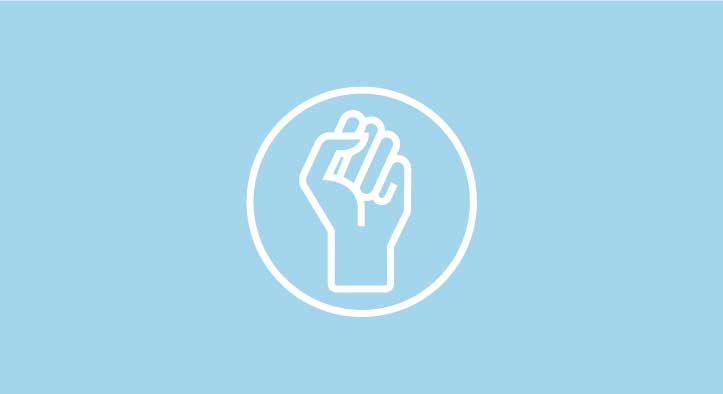MHE’s reaction to the Council of Europe’s resolution on ending coercion in mental health

The Council of Europe must end coercion and focus on promoting voluntary measures in mental health
On 26 June 2019, the Council of Europe’s (CoE) Parliamentary Assembly (PACE) unanimously adopted a resolution and recommendations to end coercion in mental health. Mental Health Europe (MHE) welcomes this positive sign of commitment from one of the most prominent human rights international organisations to ensure a human rights-based approach in mental healthcare in the European region.
The resolution reiterates the urgent need for the Council of Europe member states to start the immediate transition towards the abolition of coercive practices in mental health, in line with the United Nations Convention on the Rights of Persons with Disabilities (CRPD). “Coercion has a deterring effect on persons with mental health conditions,” says the resolution. “There is a need to break this vicious circle.” Mental health systems across Europe should be reformed so that they protect and respect the human rights and dignity of persons with mental health problems or psychosocial disabilities.
MHE is particularly pleased with the Parliamentary Assembly’s recommendation to the Council of Europe Committee on Bioethics (DH-BIO) to conduct a study on “Good practices in mental healthcare – how to promote voluntary measures”. Both the resolution and the study concept note, developed at the last DH-BIO meeting, include evidence from Mental Health Europe’s report on the promising practices in prevention, reduction and elimination of coercion across Europe.
“Despite positive changes in several European countries, the use of involuntary, forced or non-consensual practices in mental health services is still widespread across Europe,” says Claudia Marinetti, Director of Mental Health Europe. “Our overview of successful and promising practices can point the way to how to end coercion in mental healthcare. It is not about changing individual practices but about implementing a new culture in mental health care,” Dr Marinetti concluded.
We also welcome PACE’s recommendation to shift DH-BIO’s efforts away from working on an Additional Protocol to the Convention on Human Rights and Biomedicine, also known as the Oviedo Convention. The additional protocol aims to regulate involuntary placement and involuntary treatment. It goes against the UN CRPD because it does not protect the human rights of persons with mental ill health or psychosocial disabilities, including their right to free and informed consent. Instead, PACE encourages DH-BIO to focus on promoting voluntary measures and drafting Guidelines on ending coercion in mental health.
“Mental Health Europe continues to oppose the draft Additional Protocol to the Oviedo Convention and urges the Council of Europe to withdraw it. It is time for society and the States to start changing the ways they deal with mental ill health. At the same time, we welcome the Council´s efforts to take an active role in developing policies that support voluntary treatment in Europe. Our advocacy work has been acknowledged but more remains to be done. This, among others, should include meaningful involvement of persons with mental health problems and psychosocial disabilities.” – Kristijan Grdjan, MHE Board Member and Chair of MHE’s Human Rights Committee.
***
Additional information
The work on the Additional Protocol to the Convention on Human Rights and Biomedicine (Oviedo Convention) was started in 2013 by the Committee of Bioethics of the Council of Europe (DH-BIO) under the mandate received from European countries that are members of the Council of Europe. Mental Health Europe, along with other organisations representing people with lived experience, United Nations experts and internal bodies of the Council, have strongly opposed the DH-BIO’s work on the Additional Protocol and urged to withdraw the draft.
On the 6th of June 2019, the Committee of Bioethics agreed to conduct a study on good practices in mental health and voluntary measures, while still aiming to adopt the draft additional protocol.
The Protocol aims to regulate ‘involuntary placement and treatment of persons with mental disorders’, but MHE believes it is out of step with the United Nations Convention on the Rights of Persons with Disabilities (UNCRPD) and could solidify rather than reduce institutionalisation and forced treatment of persons with psychosocial disabilities.
- See a non-exhaustive compilation of statements opposing the draft protocol to the Oviedo Convention of the Council of Europe
- Watch our video summary of contributions to the UN Consultation on Human Rights and mental health
- Watch Kristijan Grdjan speaking against the Protocol at a UN consultation on ‘Identifying strategies to promote human rights in mental health’ in Geneva, Switzerland, May 2018
- Read Council of Europe’s Commissioner for Human Rights address to the Parliamentary Assembly on the subject of ending coercion in mental health
- Read an open letter to the Council of Europe’s Secretary General regarding the draft additional protocol to the Oviedo Convention, of which MHE has been a co-signatory
- Read our response to the public consultation in 2015
- Read MHE statement with the European Network of (ex-) Users and Survivors of Psychiatry in 2017
Stay connected
Get our latest news, personal stories, research articles, and job opportunities.